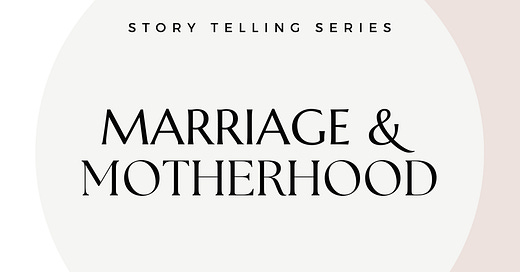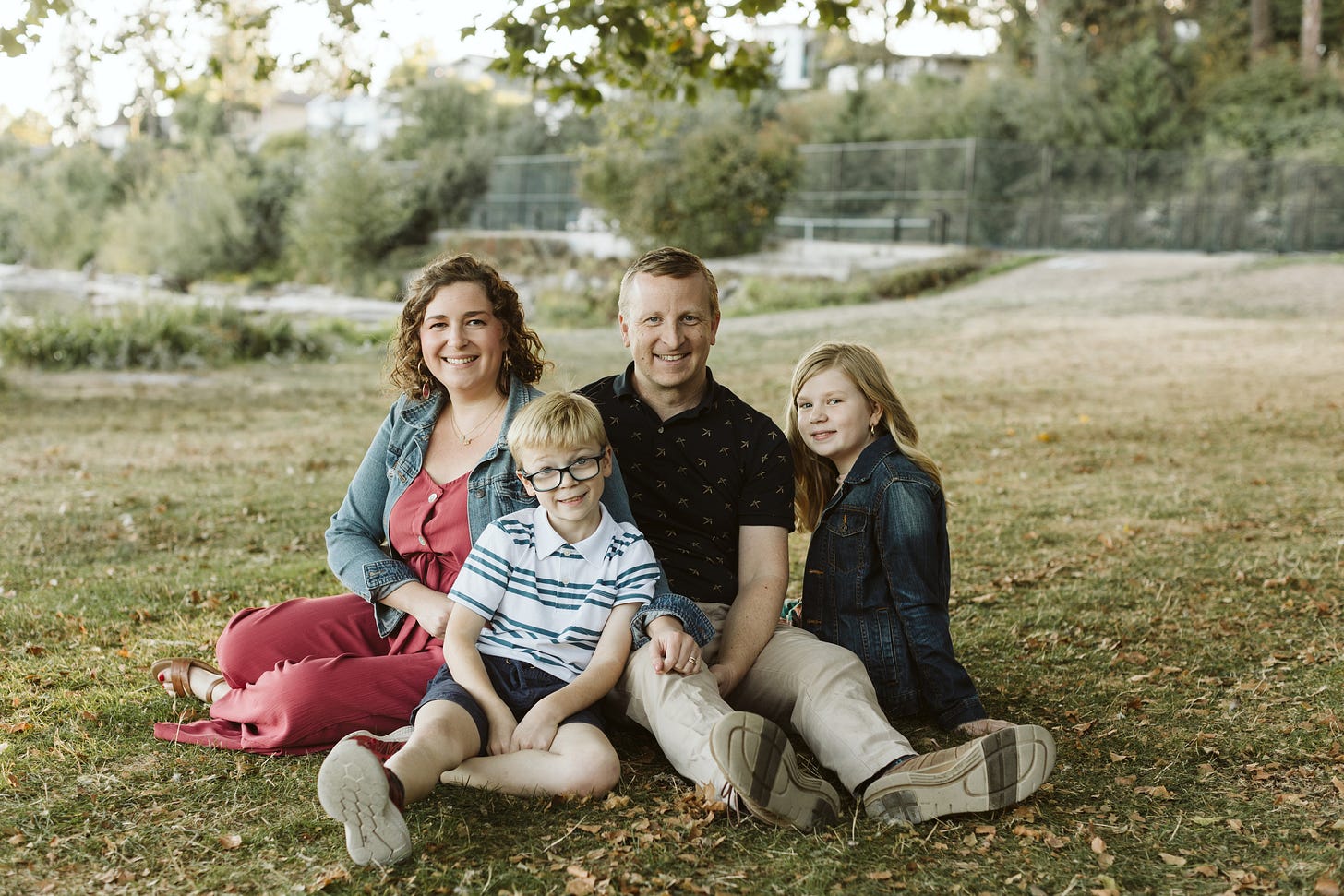I wonder how much conflict two people so committed to each other could really have.
Our pastor’s eyes twinkle, his lips twitch. He holds back a small chuckle. “Well,” he announces, stacking the papers. “You both scored very high in the area of commitment. So, that’s good.” He emphasized the word commitment, and I jokingly wonder if we scored low on other important parts of the temperament test, like compatibility, or love.
“It’s not that you scored low in any area,” he responds. “But you both scored extremely high in commitment. Higher than usual.”
I raise my eyebrows at him. We’re about to get married, I think to myself. You’re going to ask us if we’re committed “until death parts us?” Doesn’t everyone score high in commitment when they’re about to get married?
Setting the papers aside to look at us directly, he continues, “It’s good that you both scored high in commitment because there are some areas where your temperaments are quite different.” During the rest of the counseling session, our pastor tries to help us see our differences in light of the long-term, self-sacrificing love we plan to declare to one another. He points out that it's ok to be surprised by our partner, to be different from one another even in ways we used to be alike, to grow and change through the years. He repeatedly highlights the fact that our commitment to one another might be something to lean on when we have conflict.
Marriage counseling is a prerequisite for getting married in our home church, but I'm not sure we need it. We already went through books like, “365 Questions to ask your Partner” and “100 Things to Know about Your Spouse.” Since then, as part of our private preparation for marriage, we’ve been filling them out on the phone or during our weekends together, answering questions about our communication styles, spending habits, philosophy about debt and family holidays and even home decor and pets. No topic is off limits.
I try to take note of this wisdom about growing and changing alongside my partner. But I have heart eyes and visions of a wedding registry at Crate & Barrel, and I wonder how much conflict two people so committed to each other could really have.
--
A lot, it turns out.
As the effusive young wife of a reserved young man, I am often surprised to see my husband get emotional about football. Surprised, and frustrated, because when I want him to be a passionate partner in our life, prone to sweep me off my feet with a spontaneous weekend away, perhaps, he remains thoughtful and predictable. These differences pose a challenge on any day, but college game day exacerbates things because we cheer for rival teams.
Once we arrived at a watch party with seven-layer dip and chips, plus nerves already raw over our little rivalry. Desperate to elicit some strong emotions from him, I engaged in a little pre-game smack talk, and then when my team lost, he mercilessly rubbed it in my face. There were strong feelings, that’s for sure. Unfortunately, those feelings manifested in raised voices and snide remarks in front of our friends. Back home, my husband fumed over how I crossed the line by yelling at him in front of other people, while I held on to my contempt over “his win.”
I feel a stab of shame remembering that my college roommate once wrote a piece of marriage advice for us at an engagement party. “Don’t fight about the Ducks and Huskies,” she'd admonished sagely. In a calmer, post-fight discussion, my husband and I decide we won’t let a college football rivalry come between us.
--
Over the next five years we find ways to follow our football teams without involving each other. Instead of watching the rivalry game, the day becomes an annual date night, and we check scores online later. We begin to watch soccer together, and we cheer for the same teams.
This compromise maintains a kind of peace, but my husband is still taken aback by my emotional outbursts, and I still long for him to cheer for me as enthusiastically as he cheers for my mortal football enemy. We shove these issues under the rug, over time, we lose sight of how to discern what’s important and whose turn it is to unload the dishwasher or wash the sheets.
It’s in this season we find ourselves knee-to-knee on a therapist’s couch, another prerequisite for our future in ministry overseas.
“Well, you may be the most committed couple I've ever counseled,” our marriage counselor says, emphasizing the word committed, as she passes us the results of another temperament evaluation. “You both scored extremely high in that area.”
That’s right, I think, rolling my eyes a little. We are nothing if not committed to each other.
“Since you’re obviously going to be married for a long time,” here she chuckles warmly, “I think you could be happier. I want to give you some tools for communicating and for sharing joy with each other.”
The smug look fades from my face, and I tilt my head at her. My husband and I share small, curious smiles, lean in. Who doesn’t want to be happier?
–
The baby, our first, dozes in my best friend's arms. She is just days old. I take a shower, drink an extra cup of coffee while it's hot, and bask in the care of my friend and the meals she brought. During my friend’s visit, a dark cloud that has been hovering since we brought the baby home lifts. When she asks how we are, I open up about my depression and marvel at how my husband handled the change. He’s helpful, he participates. He’s such a good daddy. Even though nighttime feedings are my territory, he follows me to the nursery to change the diaper after I’ve nursed, brings me a glass of water, swaddles and shushes the baby back to sleep.
But there is something wrong. He’s retreated into himself. He doesn’t complain, nor does he express joy or wonder at our new baby. One day, we both erupt over something minor. Our age-old fight: I’m riding the emotional waves of new motherhood—alone, it feels like—since he can’t relate to even one of my feelings. We pull away from each other, angry and struggling to meet each other's emotional needs while caring for a newborn, but eventually we talk through it. Tapping into our counseling, we share our feelings. “Being tired messes with my emotions,” he says. “It’s annoying; I’m not used to it.” I share my fear, and shame, that my primary emotions are negative, and how I need his support. We promise to find ways to reconnect and give each other rest over the next few weeks.
Eventually, that baby becomes a toddler, and we add another child to our family. This time, we’re prepared for the emotional roller coaster, and still it gets the best of us. I get jealous that my husband goes to work, where probably no one touches him, and I’m stuck at home with two little humans who are only happy when they’re touching me. I don’t know why I’m surprised when we leave a package of chicken on the counter all day and then yell at each other about it. But over dinner, our daughter says in her funny toddler voice, “Can we ’preciate?” She wants us to go around the table saying things we appreciate about each other, a skill we learned to remember how our different personalities really are an asset to our marriage. And, apparently, our children, too.
--
Next year we’ll celebrate 20 years of marriage. We live abroad and work together, like so many couples in ministry, and unlike many expats, we’re committed to staying for the long haul. To sustain and enjoy our ministry, we have to work hard at our marriage as well as our relationships with others. Reflecting on that temperament analysis from all those years ago, my husband and I might answer differently now that we’ve experienced a few iterations of our commitment to each other. In those early years of marriage, we were, without question, committed. We were also frequently unhappy. We have learned that commitment to each other is more than just resolving to stay married no matter what. Instead, we choose humility and appreciation. I discover that a joyful, sacrificial choice is a much lighter burden than a commitment with gritted teeth.
Rosalie is wife to Chris and mom to two third culture kids, ages 12 and 10. She is a church-planter, disciple-maker, fair-trade peddler, and memory-keeper. She tries to write Memoirish Prose - something from the past, something for today, on her substack (https://rosalieduryeewrites.substack.com). Before moving to Spain, Rosalie worked in communications for a big software company and small nonprofits. Besides her substack, find her work at Taking Route (takingroute.net) and on Instagram as @roseduryeewrites.









Thank you for sharing this beautiful story Rosalie!